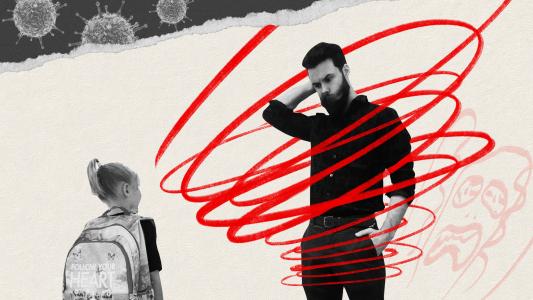A global pandemic requires a global response. As COVID-19 continues to spread, companies across the globe are looking for ways to contribute to the response effort — and some of those businesses fighting the coronavirus need your help.
Y Combinator is a startup accelerator, which means it identifies and invests in promising new businesses. It has an impressive eye for talent, too, having invested early in Airbnb, DoorDash, Dropbox, and many other now well-known companies.
More than 25 of the accelerator’s startups are now turning their attention and resources toward helping address the COVID-19 pandemic. Y Combinator has created a website that details what each of its businesses fighting the coronavirus aims to do — and how you can help them do it.
A Straightforward Attack
More than a fifth of the startups are taking a decidedly straightforward approach to the coronavirus problem: they want to identify a treatment or a vaccine for the virus.
To that end, Y Combinator startup PostEra has launched the COVID Moonshot project with the goal of identifying an antiviral cure for COVID-19. At the core of this effort is an open-source platform where experts across the globe can submit and collaborate on potential drug designs.
“We provide scientists with preliminary indications of what drug designs may be efficacious and ask them to think creatively about how they could turn these suggestions into an actual drug compound we can then make and test,” says a PostEra spokesperson.
The project includes an open-source platform where experts can collaborate on a cure for COVID-19.
PostEra then uses its machine learning tools to determine how to synthesize the drugs and identify those that would be the easiest to quickly create and test.
“So far, we have received over 880 drug designs from 136 contributors around the world and are now sending off the first 50 compounds to be made and tested,” says PostEra.
One of PostEra’s biggest challenges right now is coordinating all the labs involved in the project. Another is paying for the creation and testing process — that runs about $500 per compound, and the company has set up a GoFundMe page where you can contribute to the cause.
“We entitled this project COVID Moonshot as we are very aware of the challenging nature of trying to take a process that usually takes years and achieve the same result in a matter of months,” says a PostEra spokesperson. “It really was always going to be a ‘moonshot.'”
Delivering Help to Hospitals
Nearly half of the businesses fighting the coronavirus at Y Combinator aim to do so by providing the medical community with an arsenal of new weapons.
One of those is AgileMD, whose contribution to the coronavirus response effort centers on clinical pathways — the flow chart-like sets of guidelines and protocols healthcare teams refer to when deciding how to treat a patient for a specific problem.
Because the situation surrounding the coronavirus is changing so quickly (and equipment is regularly in short-supply), it’s been difficult for hospitals to maintain these pathways for COVID-19 patients.
Nearly half of the businesses are working to provide the medical community with an arsenal of new weapons.
One day, it might be standard procedure for doctors to wear N95 masks while performing CPR on coronavirus patients, for example, and the next day, doctors might be expected to reuse their surgical masks.
“Normally those kinds of changes in healthcare occur in a timespan of months,” says an AgileMD spokesperson. “With COVID-19, they are daily.”
When hospitals have those months to address changes, they can rely on their IT teams to hard-code new procedures into electronic health records. But with the coronavirus, they’re often left simply shooting out email upon email to staff every time a procedure changes.
AgileMD’s platform allows healthcare providers to update clinical pathways directly in patients’ electronic health records themselves — in a matter of minutes and without involving IT teams.
Some of the startup’s partner healthcare systems have already used its platform to create COVID-19 screening and treatment pathways.
AgileMD is now offering those customizable pathways to anyone who wants them at no cost — and if you can introduce the company to a hospital or health system in need, it wants to hear from you.
“Right now is when hospitals need to be developing their protocols and a reliable means to disseminate them in real time to the front lines as both the protocols and the providers change,” says Dr. Dana Edelson, executive medical director of rescue care at UChicago Medicine and AgileMD’s co-founder and president. “The hospitals that are using our tools have solved that problem and can focus on the myriad of other crises they face in this war.”
Help Businesses Fight the Coronavirus
PostEra and AgileMD aren’t the only notable Y Combinator startups aiming to make a difference in the coronavirus outbreak.
YourChoice Therapeutics is working to launch a clinical trial of a promising drug treatment; HelixNano is applying the technology it used to develop a cancer vaccine to the development of a coronavirus vaccine; and Macromoltek is using computer modeling to develop antibodies that could prevent a coronavirus infection.
AIRx Health, meanwhile, has built a system that helps medical teams monitor patients receiving home-based care for coronavirus; Medinas Health is helping hospitals buy much-needed medical equipment and supplies; and Opentrons has built and deployed lab robots capable of running up to 2,400 coronavirus tests per day.
Even if you don’t have money to donate to PostEra or connections to offer AgileMD, you can still help Y Combinator’s startups in the fight against the coronavirus.
Other groups are looking for people who can make introductions to testing laboratories, clinical trial experts, or Spanish/English bilingual pediatricians. Circle Medical, which offers telemedicine services to California residents, is simply asking that people spread the word about its services.
Just like these businesses fighting the coronavirus, each of us has something we can contribute to the COVID-19 response effort — and even something as seemingly simple as practicing proper social distancing or writing an email connecting a group with a problem to one with a solution can make a difference.






